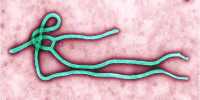Maintaining weight loss requires a different strategy than losing weight. You can do it, and you can make it easier by listening to advice from people who have been there and done it for years, if not decades.
Half of the Danish population is overweight, and 17 percent is obese. Almost 40% of people worldwide are overweight, and 13% are obese. The condition is linked to an increased risk of premature death, as well as complications such as Type 2 diabetes, cardiovascular disease, cancer, and infertility.
Weight regain after a successful initial weight loss in people with obesity is a significant and unresolved problem. Until now, there has been no well-documented study on which treatment method is best for maintaining a healthy weight loss.
Almost one in six people worldwide live with obesity, which may have serious health consequences. Researchers now document how to effectively achieve and maintain a healthy weight loss.
Researchers at the University of Copenhagen and Hvidovre Hospital have completed a new, sensational study, which has been published in The New England Journal of Medicine, the world’s most cited medical journal. According to Professor Signe Torekov of the Department of Biomedical Sciences, “by testing four different types of treatment following a diet-induced weight loss, the researchers demonstrate for the first time how it is possible for people with obesity to maintain long-term weight loss.”
The researchers demonstrated a highly effective treatment after diet-induced weight loss in a randomized clinical trial by combining moderate to vigorous-intensive exercise with appetite-inhibiting obesity medication, an analog to the appetite-inhibiting hormone GLP-1. “This is new information for doctors, dietitians, and physical therapists to apply in their practices. This is the evidence we’ve been looking for “Signe Torekov, the study’s director, explains.
“The problem is that people are fighting against strong biological forces when losing weight. The appetite increases simultaneously with decreased energy consumption, and this counteracts weight loss maintenance. We have an appetite-stimulating hormone, which increases dramatically when we lose weight, and simultaneously the level of appetite-suppressing hormones drops dramatically. In addition, weight loss can provoke loss of muscle mass, while the body reduces energy consumption. Thus, when the focus in obesity treatment has been on how to obtain a weight loss – rather than how to maintain a weight loss – it is really difficult to do something about your situation,” says Signe Torekov.

Highly efficient when combining treatments
The study included 215 Danes who were obese and had low fitness ratings. Over the course of eight weeks, the participants followed a low-calorie diet and lost approximately 13 kg, which resulted in significant improvements to their health, including a decrease in blood sugar and blood pressure.
The participants were then divided into four groups at random. Two of the groups were given a placebo, while the other two were given obesity medication. One of the two placebo groups followed an exercise program consisting of at least 150 minutes of moderate-intensity physical activity or 75 minutes of vigorous-intensity physical activity per week, or a combination of the two, while the other group maintained their current level of physical activity. Similarly, the two groups receiving obesity medication were divided into two groups: one with and one without an exercise program.
All study participants were weighed monthly and received nutritional and diet counseling with a focus on healthy weight loss in accordance with Danish health and food administration guidelines. After one year, both the exercise-only group and the obesity medication-only group had maintained their 13-kg weight loss and health improvements. The placebo group regained half of their weight while all risk factors deteriorated, such as the development of Type 2 diabetes and cardiovascular disease.
The combination group, which followed the exercise program and received obesity medication, saw the most dramatic improvements. The researchers observed additional weight loss in this group, with a total weight loss of approximately 16 kg over the course of a year. The health benefits were also double those of the individual treatments, i.e., twice the fat mass loss while preserving muscle mass, higher fitness ratings, lower blood sugar, and improved quality of life.
The two exercise groups improved their fitness rating, lost fat mass, and gained muscle mass. This could imply a healthier weight loss than people who only lost fat mass without improving their fitness rating.
“It’s an important point to emphasize because losing weight does not necessarily result in a healthier body if you lose a lot of muscle mass at the same time,” says Signe Torekov. “It is fantastic news for public health that a significant weight loss can be maintained with exercise for approximately 115 minutes per week, mostly at a vigorous intensity, such as cycling, and that when exercise is combined with obesity medication, the effect is twice as good as either treatment alone.”
The researchers now hope that by conducting the study, people with obesity, in collaboration with their care provider, will be able to develop a useful framework for maintaining their weight loss.
Fundamental lifestyle change
Signe Torekov points out that many people with obesity have tried to lose weight before, only to regain weight. This happens because the general advice is to eat healthier and exercise more.
“Without a follow-up on whether people actually have support to perform an exercise, the treatment will not be enough; thus, we also followed up with the participants on an ongoing basis to ensure that they received the support they needed in order to exercise; this is necessary because maintaining a weight loss is extremely difficult; people must understand this.”
“Our research also shows that without a structured treatment plan, there is a high risk of regaining the weight. Over the course of a year, 12 individual consultations were conducted, including weighing and diet advice from Danish authorities in accordance with guidelines for healthy weight maintenance. This was simply insufficient for the placebo group without an exercise program; after one year, all health benefits gained from weight loss during the eight-week program had vanished, despite frequent weighing and diet and nutritional counseling based on official guidelines.” According to Torekov.
This, according to Signe Torekov, emphasizes the importance of starting a weight loss program with a mutual weight maintenance program based on feedback. “As a result, it is critical that there is a system in place to assist people who are obese in maintaining their lifestyle change. Our study can help with this because we can show doctors, dietitians, and municipalities that if they create a structured, joint treatment plan with the individual and use ongoing follow-ups, it works “Torekov says.
















